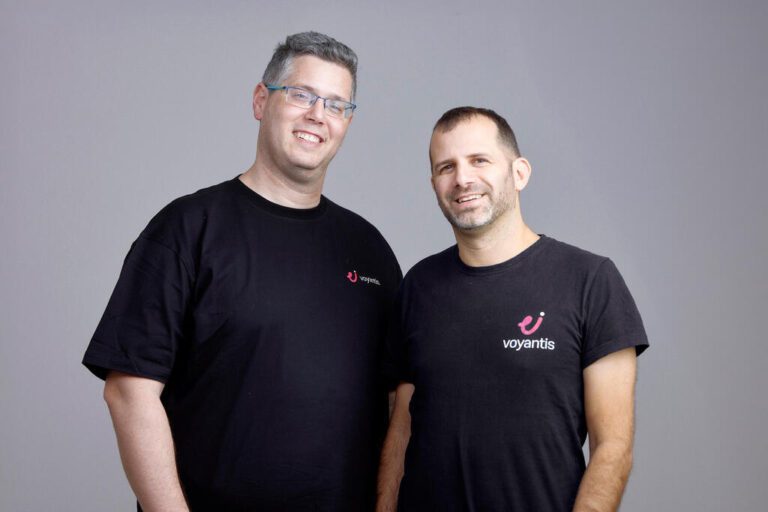Latest post
San Francisco-based software development company Nuon announced that it has raised $16.5 million in funding to scale its innovative ‘Bring Your Own Cloud’ (BYOC) platform. The BYOC approach allows software vendors to deploy their applications directly into customers’ cloud accounts, which revolutionizes the software delivery model with a focus on security, compliance, and operational efficiency.

Funding Highlights
Funding Amount: $16.5 million
Funding Round: Combined Seed and Series A
Date Announced: December 17, 2024
Lead Investors: Not publicized, though Nuon has stated strong industry-aligned venture firms and angel investors support.
About Nuon
Founded Year: 2019
Founder: Jon Morehouse
Headquartered: San Francisco, California
Industry: Software Development and Deployment
Product Description: BYOC (Bring Your Own Cloud) platform
Nuon was created to change the way companies deploy software, providing a model where applications can be directly integrated into customers’ cloud environments. This approach eliminates the complexities of traditional SaaS models, offering a streamlined, secure, and customer-centric solution.
Related post
Salt AI raises $3 Million and Appoints Aber Whitcomb as CEO
Basis AI Raises $34M to Revolutionize Accounting Automation
Point-Wise Breakdown of Nuon’s Journey and the BYOC Model
Nuon’s co-founder, Jon Morehouse, had a vision to create a deployment solution directly addressing the limitations of the SaaS model: issues with data migration, the problem of vendor lock-in, and compliance complexity.
- The BYOC model keeps data in the customers’ environments, making it more controlled and secured.
- Software vendors can employ Nuon to provide SaaS-like functionality without forcing customers to move data into vendor-controlled environments.
Nuon’s platform offers companies the ability to inject software into customers’ cloud accounts, bypassing the traditional SaaS hosting. Key features include:
- Secure Deployment: Applications are deployed inside the customer’s cloud infrastructure, reducing the risks associated with data transfer and centralization.
- Compliance-Friendly Design: The customers have full control over sensitive data, making it easier to comply with local and global data regulations.
Faster Implementation: Deployment happens directly in the client’s environment, minimizing downtime and setup efforts.
Impact on the SaaS Ecosystem
- BYOC blends the best features of both on-premises and traditional SaaS, effectively bridging a gap.
- Vendors provide cloud-native features, with customers deriving secure, localized deployments.
Industries with high-security standards such as healthcare, finance, and government see an appealing structure.
Founder Spotlight
- Jon Morehouse is an experienced software developer who launched Nuon in 2019.
- Before Nuon, Morehouse built tools like PowerTools to help companies deploy static sites and serverless apps on AWS.
- He was well-versed in cloud architecture and made it his focus to make the methods of software delivery more simplified for Nuon.
He has planned to use $16.5 Million funding for expansion of Nuon’s operations and enrich its platform offerings. The key areas include:
- Product Development: Adding support for more cloud providers (AWS, Azure, Google Cloud, etc.) and new software categories.
- Team Expansion: Hiring developers, engineers, and sales personnel to scale platform capabilities and reach.
- Market Penetration: Expanding Nuon’s adoption across industries with high compliance needs.
- Customer Experience: Creating better tools for onboarding and support to ensure smooth transitions for software vendors and their clients.
Challenges Addressed by Nuon
Data Sovereignty Concerns: BYOC eliminates the need for organizations to transfer data out of their own environments, addressing regulatory hurdles.
Latency Issues: Software runs in proximity to customers’ core systems, reducing latency compared to traditional SaaS setups.
Vendor Lock-In Avoidance: Clients maintain flexibility and control over their software environment, enabling easier transitions if needed.
Market Adoption and Industry Trends
- Cloud adoption rates continue to gain momentum, and companies increasingly need solutions that will bring better flexibility and security.
- Byoc platform offered by Nuon is ideally positioned among these trends to present the unique value proposition both to SaaS providers and consumers.
As more companies aim to control their data and systems, the space to be captured by
Competitive Landscape
Nuon operates in a small but fast-growing niche area of the market of deploying software.
- Traditional SaaS Vendors: Compete with managed cloud solutions, though they often force their customers to give up on data control.
- Infrastructure-as-a-Service Providers: The vendors are more keen on offering custom deployments while being far from Nuon’s out-of-the-box BYOC capabilities.
How is Nuon Different:
Less complex deployments with zero need for extra IT overheads
- Clients’ flexibility through compatibility with big cloud platforms
- Investor Confidence and Market Outlook
Investors in Nuon are placing their bet for long term prospects of the BYOC platform for which they consider the following points
Increasing data sovereignty regulations around the world, which drive demand for the handling of localized data.
Demand from SaaS vendors for differentiation in terms of offerings that provide secure and flexible deployment options.
Increasing enterprises’ preference for solutions offering no vendor lock-in as well as operational efficiency enhancements.
Future Outlook
Nuoon has promising prospects and will:
- Expand Features of the Platform: include analytics, monitoring, automation to make deployments more robust.
- Grow Ecosystem Partnerships: Engage with cloud providers and SaaS vendors to enrich the BYOC ecosystem.
- Scale Operations Globally: Europe and Asia markets, where regulatory pressures create demand for compliant cloud solutions.
- Focus on Training and Support: Create educational resources for customers to make the transition from traditional SaaS to BYOC.






Pingback: Databricks Secures $10 Billion, Elevating Valuation to $62 Billion